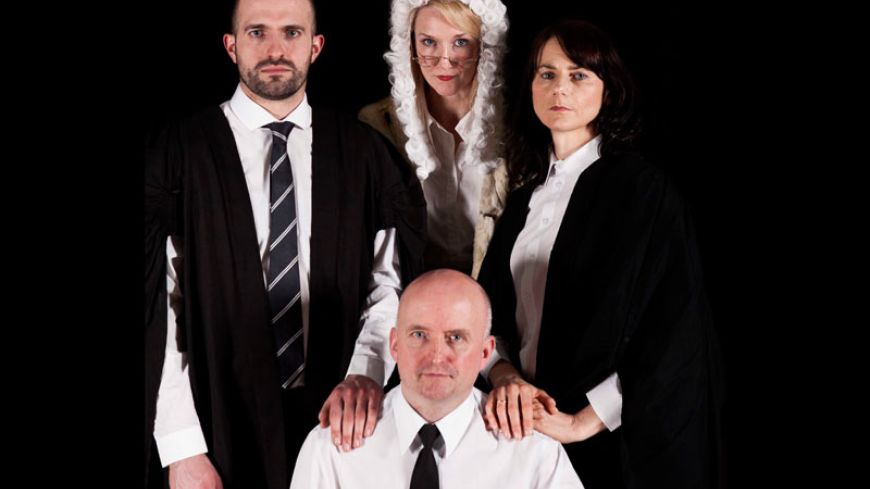
In an essay published in 1946, George Orwell wrote about how the British public love reading newspaper reports about murder, especially involving sex and poisoning. W. H Auden admitted that his avid reading of detective stories was an addiction like tobacco or alcohol. Our guilty pleasure in crime fiction today is continually quenched by numerous TV detective series and Courtroom dramas – Poirot, Ally McBeal, Judge John Deed, Kavanagh QC, Law and Order UK, Silk, The Accused …
A Courtroom creates the perfect setting with all the elements for a strong narrative and tense, intimate drama. Witnesses under oath are grilled by defence and prosecution barristers while judge and jury observe the proceedings to decide the fate of the accused.
The plot of a courtroom drama is acted out in a neatly structured package, resulting in a similar scenario to Poirot gathering the suspects together in the drawing room to reveal his climactic verdict.
The Freemason’s Hall is the ideal venue for “Silence in Court”: we are led up the stairs into a magnificent, wood panelled room lined with portraits, and asked if we would like to be on the jury or sit in the public gallery. No problem finding twelve eager jury members who relish fully participating in the play – and thereby deciding the outcome of the case.
The atmosphere from the start is solemn and formal as the Court Usher explains the protocol, rules and regulations to which we must all adhere. At the shout of “All Rise” for the entrance of the Judge, many of us jumping to our feet almost feel we are in a real court.! And so the case begins, rich in the language of legal jargon and litigation as the Prosecution Counsel, Mr Paterson, presents his case.
Charles Brand has been accused by Jennifer Lyons of rape, which took place in a nightclub. The audience (Jury and Public), listen intently to both accounts of what happened that night, first from Ms Lyons and then Mr Brand.
They are cross examined in turn by the Prosecution and Defence Lawyer, Rhona Dalbeith, who argues that Jennifer is a predator who seduced her innocent client. Cue - heightened tension, tearful emotion and the usual shouts of Objection!.
A clever theatrical device is that the jury can then cross examine the accused and complainant.
This is all taken extremely seriously showing astute observation on the evidence given to clarify the conflicting stories. There were moments of great hilarity too.
One could argue that this fictional Courtroom drama illustrates the difficulty in upholding the actual Justice system due to the subjective opinion of each member of the jury. At each performance of the play, 12 new audience members, (local, UK and international Fringe visitors), will decide whether Charles Brand is guilty or innocent of the charge. Therefore, perhaps a different verdict every day.
The entire cast is superlative in their roles, all crisply directed with clarity, pace, humour and attention to detail. An impeccable performance is given by Paul Murray as the Court Usher, with his meticulous official manner and voice of authority in directing the proceedings. (The story is certainly topical and authentic: in the news earlier this week, a prosecution barrister, Robert Colover, QC, described a13-year-old girl, the victim of abuse by a paedophile, as a sexual predator in the case at Snaresbrook Crown Court.)
If you love a gripping crime drama, take your seat at the Freemason’s Hall in the jury stand or public gallery and make up your mind on whether Jennifer or Charles is telling the truth.
Show times
1 - 25 August, 2013: 4pm and 7.30pm daily.
Ticket prices
£10 - £12.50

